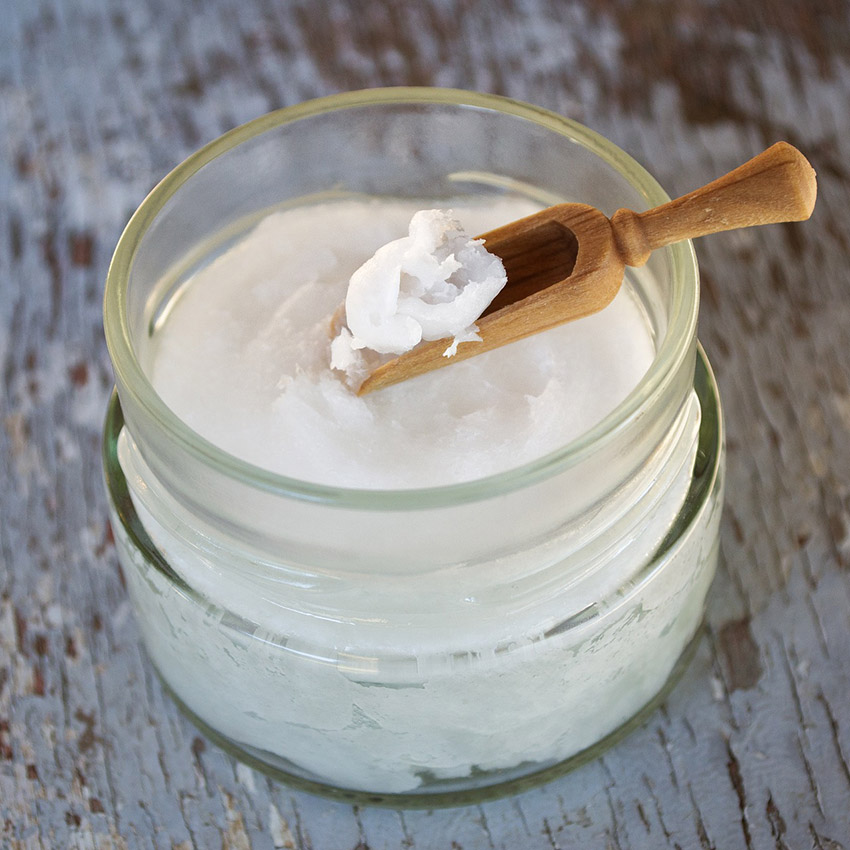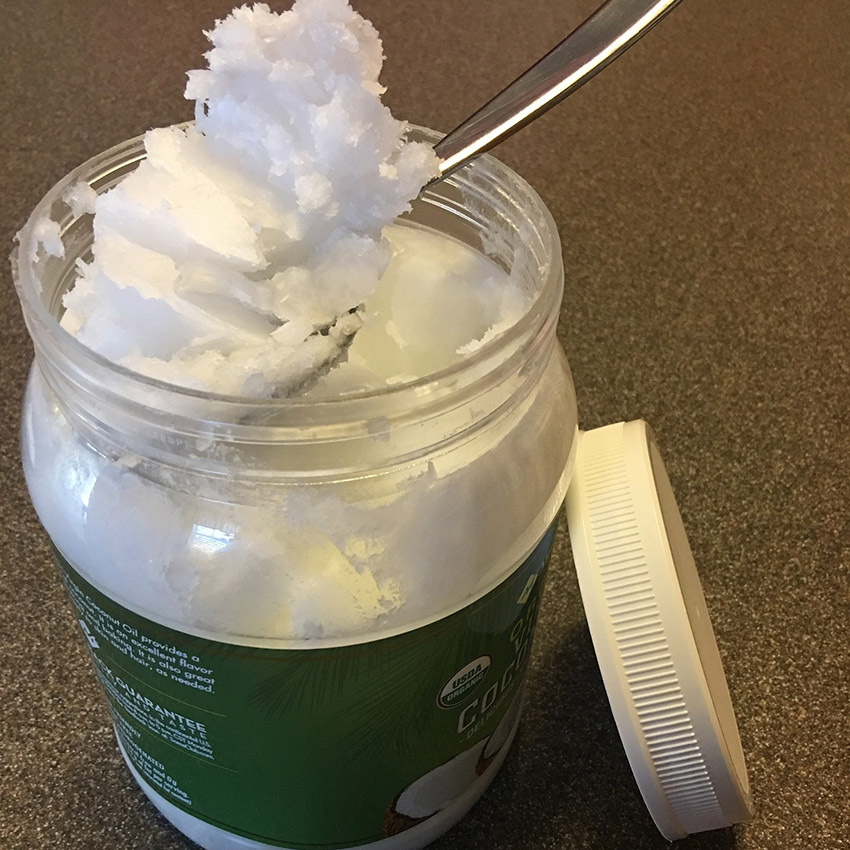As you travel down the aisles of your grocery store, you may have noticed coconut oil on the shelves. Did you ever stop to check it out? Some people keep strolling past it because they’re unsure what coconut oil really is and what it does. It’s unlike the canola oil or vegetable oil that you may be more used to putting in your shopping cart. However, once you realize the benefits of coconut oil, you’ll wonder why you never bought it before.
Coconut oil comes from the kernel (or so-called “meaty” parts) of the coconut taken from the coconut palm. Although it’s a rather simple product, its uses make it the superhero of the oils, so to speak. In fact, some people classify coconut oil as a “super food” because it has several benefits with far-reaching uses. Check out what has so many people going nuts for coconut oil!
Thumbnail Sources: Pixabay / Flickr
Coconut Oil Uses And Benefits

1. Rich in Good Fats. Coconuts are rich in the types of fats that are digested quickly and can be used as a source of energy.
2. Burns Fat And Reduces Hunger. Just as coconuts are a good source of energy, they can also help you burn fat and reduce hunger. It all goes back to the way coconuts are digested and metabolized.
3. Butter Substitute. Coconut oil can be used as a butter substitute in many recipes, and is also the oil of choice for many in the kitchen. Since coconut oil is mainly a saturated fat, it can withstand higher temperatures better than other oils.
4. Improve Cholesterol Levels. The saturated fats in coconut oil may increase the good cholesterol in your body while reducing the bad one.
5. Brain Health. Coconut oil has been linked to promoting brain health, and possibly even warding off dementia and Alzheimer’s disease. Doctors are particularly interested in a study that showed Alzheimer’s and dementia patients received short-term benefits after using coconut oil.
Does Coconut Oil Help Sunburn?

Besides the health benefits of coconut oil, many have turned to this “super food” outside of the kitchen. One way is to treat sunburn and dry skin.
1. How Coconut Oil Is Good For The Skin
Coconut oil is known as an excellent skin moisturizer. Some people say it even works well as a skin cleanser. People who have dry or damaged hair even turn to coconut oil for its restorative properties. Coconut oil acts as a good moisturizer because the saturated fats it contains help to keep moisture locked into the skin. The different acids found in coconut oil also help to soothe skin and wounds because they have strong antibacterial properties.
2. Can Coconut Oil Prevent Sunburn?
While coconut oil may be good to soothe the skin if it gets burned from the sun, doctors do not recommend it to prevent sunburn. Researchers have found that natural oils, like coconut oil, do not absorb enough ultra violet rays to provide an adequate SPF. In fact, researchers determined the SPF of coconut oil would be equivalent to a one. You wouldn’t go to the drug store and buy a sunscreen with an SPF of one, would you? That’s why coconut oil is not a good choice to prevent sunburn. Dermatologists recommend we use a sunscreen with an SPF of 30 or higher. Stick with that advice if you want to prevent sunburn. If you do get sunburn, then you can turn to coconut oil.
How To Use Coconut Oil To Treat A Sunburn

You used sunscreen to prevent sunburn, but somehow you still ended up getting a burn. While aloe seems to be the go-to remedy for sunburn, coconut oil is another that is just as good, if not better for sunburn relief. Coconut oil not only takes the burn out, but also helps tighten skin to prevent wrinkles and other long-lasting damage. Many advise actually waiting one day after the burn to apply coconut oil. Applying it too soon may actually trap the heat in, which won’t give you sunburn relief. When you’re ready, here’s how to get rid of sunburn using coconut oil.
- Depending on where you are applying the coconut oil, use as much as you would if you were applying simple lotion.
- Massage it gently into your skin. Remember that it’s a burn, so it’s going to be sensitive! By just applying it, you are increasing blood circulation, which in turn helps in the healing process.
- You can either leave the coconut oil on during the day or overnight, or you can choose to wash it off after a while. For extra relief, you can combine one cup of coconut oil with one teaspoon of vitamin E. Apply that mixture directly onto the sunburn.
Coconut Oil Warnings

As with anything, there are warnings if you choose to use coconut oil for sunburn.
1. Be Aware Of Allergies. If you have a nut allergy, check with your doctor first. He or she may tell you to test a small amount on your skin. Don’t do this unless your doctor gives you the green light! You may not be able to use coconut oil at all.
2. Look For USDA Approval. When buying coconut oil, look to see that the product you chose has been federally approved.
3. Choose Organic. If you are concerned about side effects, look for coconut oil that is organic. Virgin coconut oil is also a good choice.
If you are pregnant or breastfeeding, be sure to check with your doctor first before using coconut oil. Also, check in with your pediatrician if your child gets a sunburn and you are thinking of coconut oil for sunburn treatment. He or she may advise other remedies.
We all know sunburns are anything but fun. If you know someone who is looking for information on natural sunburn remedies like coconut oil, be sure to SHARE this article with them.




